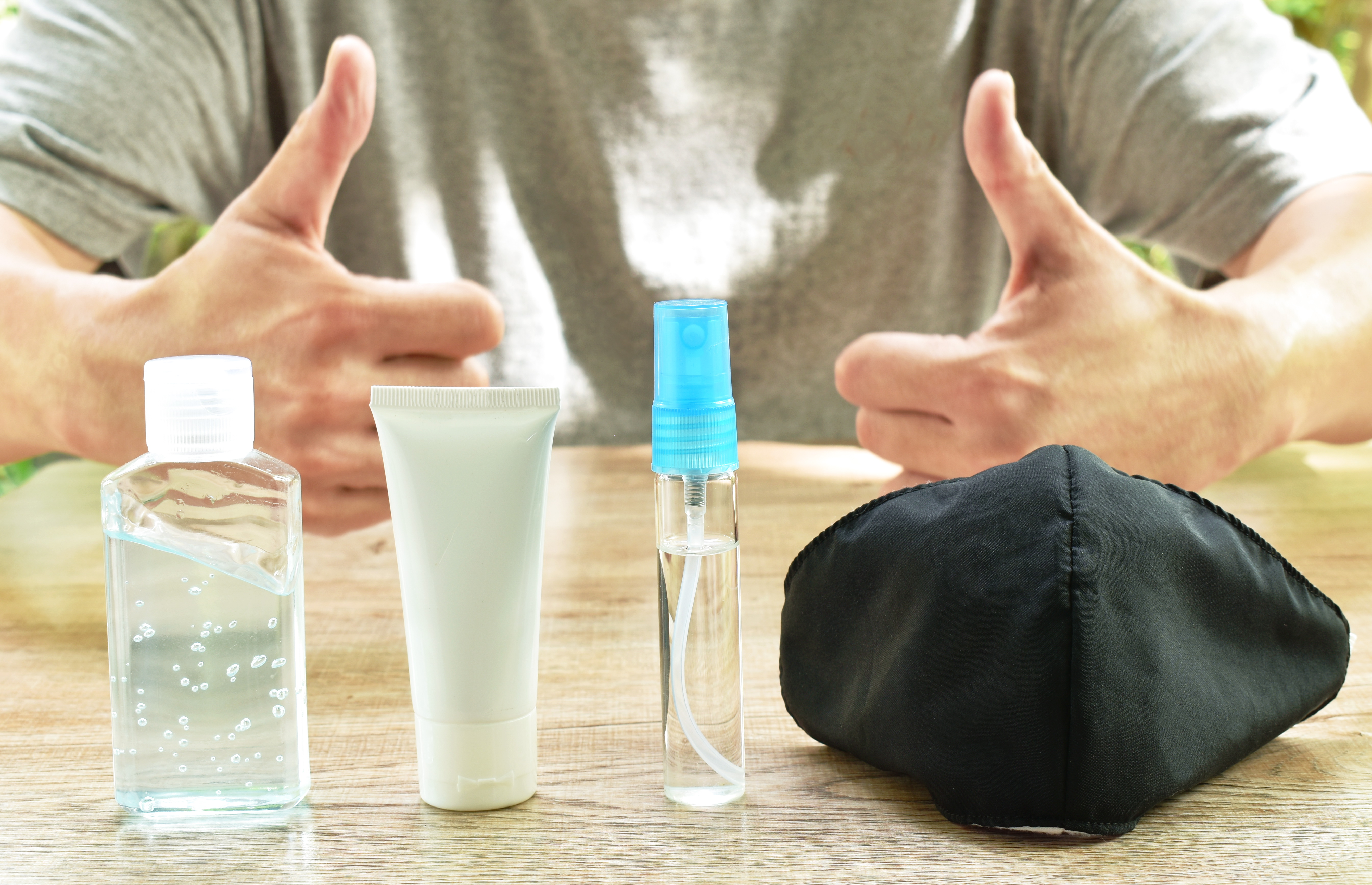
- 25 Jun, 2020
- /
- Category:
New Normal: Post COVID-19 Skin Care Trends
In the ongoing fight against COVID-19, Centers for Disease Control (CDC) and World Health Organization (WHO) have recommended frequent hand washing for at least 20 seconds with lukewarm water using soap to wash every part of the hands, including between fingers and around nails. When soap and warm water are not available, hand sanitizer should be used routinely to help prevent the spread of the virus. It is recommended to use a hand sanitizer that contains at least 60% alcohol to kill germs.
As economies around the country and world re-open, continued hand washing and hand sanitizing practices will be an important part of preventing significant spikes in cases of COVID-19 for the foreseeable future. But frequent hand cleansing can cause dry skin that can flake, itch, crack, and bleed without proper precautions. This may lead to open wounds that can allow in bacteria and other germs, increasing infection risk.
As we adjust to the “new normal”, skin care brands need to consider the value of incorporating moisturizing and sanitizing ingredients in their products. The American Academy of Dermatology recommends applying a “pea-sized amount of hand cream or ointment to slightly damp skin following washing to help prevent excessive dryness”. When using hand sanitizer, hand cream or ointment should also be applied immediately after the hand sanitizer dries. Using moisturizer after washing your hands (or hand sanitizing) does not negate handwashing efficacy. Dermatologists suggest using a “fragrance-free” and “dye-free” hand cream or ointment that contains mineral oil or petrolatum and comes in a tube rather than a pump-bottle.I
When it comes to moisturizers, the greasier the better. If skin is particularly dry and cracked, thick moisturizers can be applied to the hands and then they should be covered with cotton gloves or cotton socks overnight to let healing take place during sleep.II However, maintaining healthy skin amidst excessive hand cleansing is not just about using proper moisturizer. The bacteria and fungi in the skin microbiome can use their energy to produce antimicrobial peptides that help maintain skin health by preventing pathogens from growing. These good microbes can also stimulate skin cells to produce antimicrobial peptides that destroy viruses.III
Cleansing is a complex physical and chemical process that requires a delicate balance between skin hygiene and stratum corneum barrier damage. Products can shape specific skin microbial communities by changing their chemical environment. Cleansers are effective at maintaining skin hygiene and a healthy biofilm but may cause skin barrier damage, worsening eczematous skin disease.IV Various types of dermatoses and skin sensitivities are thought to be related to a dysfunctional skin barrier. Dysregulation of the skin’s immune response may present itself in skin disorders such as Atopic Dermatitis (AD), eczema, psoriasis and allergic contact dermatitis.V
A well-formulated cream for sensitive skin can enhance barrier repair, increase the skin’s water-retention capacity, and optimize healing. There are some active ingredients that are Generally Recognized as Safe (GRAS) for reducing signs and symptoms of mild to moderate AD and other types of pruritic dermatoses in children and adults. Examples of these ingredients are dimethicone, glycerin, zinc, petrolatum, etc.
Skin damage and dryness can also be minimized with alcohol-free, nondrying, non-irritating antibacterial hand and body care products. These may have the active ingredient Benzalkonium Chloride (BKC) at 0.13% and provide long-lasting protection from bacteria, viruses, fungi, and protozoa. They are safe for all skin types, nonflammable and will not stain clothes or fabrics. These products may be formulated with high-performance humectants that moisturize and restructure the skin by activating Aquaporins and promoting hydric circulation throughout all skin layers, while reducing water loss.
To help restore the skin microbiome, skin care formulation companies are focusing on advanced moisturizer regimes that promote adhesion of beneficial bacteria and favors the increase of anti-inflammatory bacteria. These factors ultimately can restore compromised and/or sensitive skin to a healthier state and help protect and reinforce the permeability barrier to prevent moisture loss and improve resistance to surfactants.
Scapa Healthcare offers extensive experience in formulation development and manufacturing of custom topical wound care solutions and consumer skin care products, including nourishing recovery balms, skin defense lotions, non-irritating antibacterial body wash, skin repair body creams, medicated antifungal powders, intensive skin protectants and moisturizers, and sprayable skin protectant.
Learn more about our topical skin care solutions here.
________________________________________________________________________
I. https://www.aad.org/public/everyday-care/skin-care-basics/dry/coronavirus-handwashing
III. https://www.ncbi.nlm.nih.gov/pmc/articles/PMC3535073/IV. Draelos ZD. The science behind skin care: Cleansers. J Cosmet Dermatol. 2018;17(1):8-14. doi: 10.1111/jocd.12469 [doi].
V. https://practicaldermatology.com/articles/2020-apr/the-effect-of-cleansers-on-the-skin-microbiome
